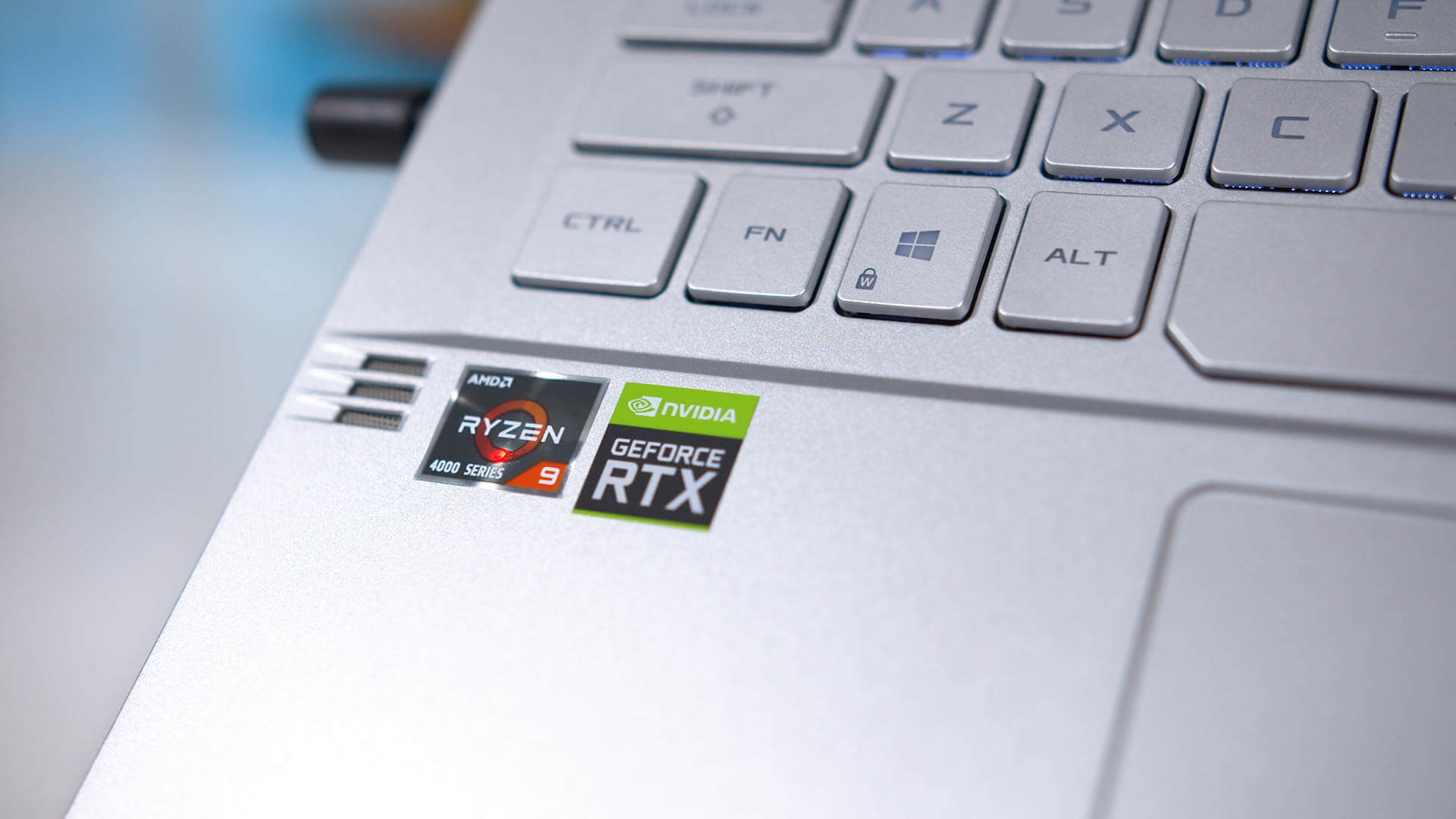Something to look forward to: A few retailers have listed Asus and Lenovo laptops with next-gen AMD Ryzen mobile processors inside them. The newly revealed specifications have filled in most of the blanks in the series' spec sheet, yielding an almost-complete and reasonably reliable picture of upcoming Ryzen parts.
It's been a busy weekend for mishaps.
The Ryzen 5000H/5000U series are the next generation of AMD mobile processors with integrated Vega graphics. They're replacing the beloved Renoir (Ryzen 4000). Previous leaks have revealed that the new series is comprised of two architectures: the top-notch processors will use Cezanne, a Zen 3 design, and the rest will use Lucienne, another Zen 2 design.
Cezanne will get the most use inside the new H-Series parts, which are designed for heavy-duty laptops. Retailers leaked the specifications for the R9 5900HS and R5 5600H, showing a 100-200 MHz clock increase. A Geekbench entry leaked the specs for the 5900HX, which is 200 MHz faster than the fastest Renoir part.
Although these are only small clock speed increases, when combined with the ~20% IPC improvement of Zen 3, the effect will be an impressive performance improvement over Renoir.
AMD Ryzen 5000H/5000U
| CPU | Architecture | Cores / Threads | Base / Boost Clock (GHz) | TDP (Watts) |
|---|---|---|---|---|
| H-Series | ||||
| Ryzen 9 5900HX | Zen 3 (Cezanne) | 8 / 16 | 3.3 / 4.6 | 45 W |
| Ryzen 9 5900HS | Zen 3 (Cezanne) | 8 / 16 | 3.1 / 4.5 | 35 W |
| Ryzen 7 5800H | Zen 3 (Cezanne) | - | - | 45 W |
| Ryzen 5 5600H | Zen 3 (Cezanne) | 6 / 12 | 3.0 / 4.1 | 15 W |
| U-Series | ||||
| Ryzen 9 5800U | Zen 3 (Cezanne) | 8 / 16 | 1.8 (2.0) / 4.4 (4.4) | 15 W (25 W) |
| Ryzen 7 5700U | Zen 2 (Lucienne) | 8 / 16 | 1.8 / - | - |
| Ryzen 5 5600U | Zen 3 (Cezanne) | 6 / 12 | 2.1 (2.3) / 4.2 (4.3) | 15 W (25 W) |
| Ryzen 5 5500U | Zen 2 (Lucienne) | 6 / 12 | 2.1 / 4.0 | 15 W |
| Ryzen 3 5300U | Zen 2 (Lucienne) | - | - | - |
The italicized specs aren't confirmed, but are based on reasonable inferences and provide context.
Cezanne and Lucienne are intermixed inside the U-Series, which is designed for thin and light laptops. Previously, a couple of Geekbench entries and a leaked spec sheet described the core counts and clock speeds of most of the new U-Series parts, which the retailers' leaks have confirmed. (The specifications that weren't confirmed aren't included in the table above, but are available here.)
However, two different retailers provided slightly different specifications for the R9 5800U and the R5 5600U. These differences are believed to correspond to 15 W and 25 W configurations of the processors. In the table, the 25 W specifications are in brackets.
Amongst the Cezanne parts, the boost clocks have been upped by 100-300 MHz relative to Renoir, and the base clocks have remained about the same. The Lucienne parts haven't been leaked to the same extent, but the clock speeds revealed thus far have been equal to or less than that of the corresponding Renoir chips.
Although it is a bit premature to draw conclusions, it appears as if Cezanne will provide a robust upgrade over Renoir, while Lucienne will provide a similar performance level.
AMD is back on the virtual stage! Join AMD CEO @LisaSu for our #CES2021 keynote on Tuesday, January 12.
— AMD (@AMD) December 2, 2020
Retailers listed half a dozen Asus gaming laptops and a handful of business Lenovo laptops. Cezanne and Lucienne are expected to appear in a greater variety of devices, from a greater variety of manufacturers than Renoir.
Last week, AMD announced that CEO Lisa Su will take the virtual stage at CES 2021 on January 12. She will most likely announce Ryzen 5000 mobile then.
https://www.techspot.com/news/87864-amd-ryzen-5000-mobile-specifications-leaked-retailers-up.html
